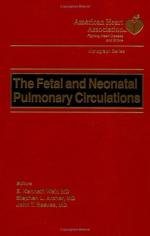|
This section contains 1,447 words (approx. 5 pages at 300 words per page) |

|
Fetal research encompasses a broad array of research activities and potential clinical applications. It is ethically controversial because, although it may yield beneficial results, it involves the human organism at a stage of development where its moral status is contested and informed consent is not possible.
Distinctions and Benefits
One key distinction centers on the stage of development of the human organism when the research is conducted, from pre-implantation to late fetal stages. The general sources of fetal material include tissue from dead fetuses; pre-viable or nonviable fetuses in utero prior to an elective abortion; nonviable living fetuses ex utero; or embryos, either in vitro or pre-implantation. Another distinction is that between investigational research that cannot benefit the subject fetus and therapeutic research that might benefit the fetus subject or is likely to benefit future fetuses. Clinical applications including transplantation using fetal material such as tissues...
|
This section contains 1,447 words (approx. 5 pages at 300 words per page) |

|


